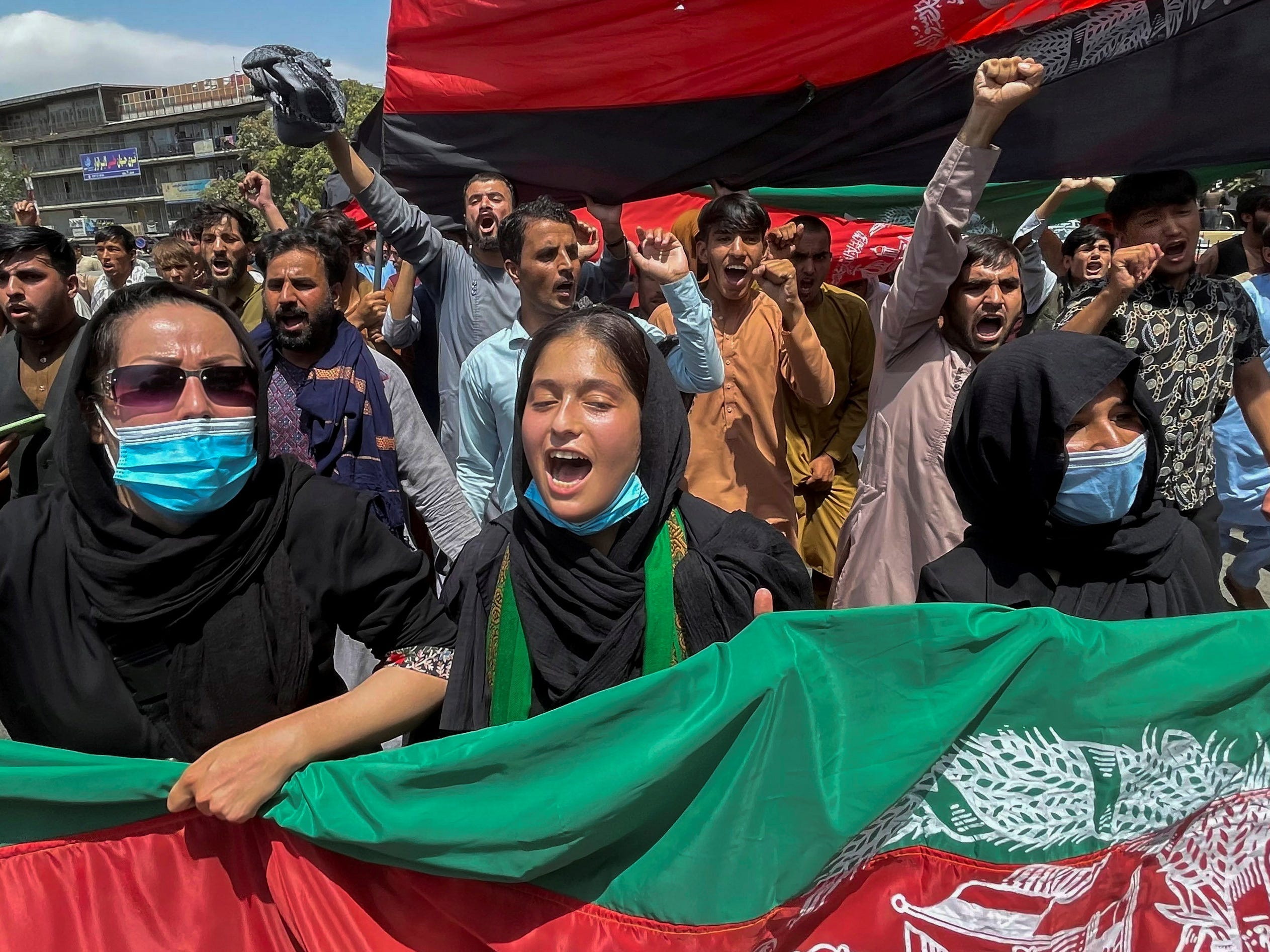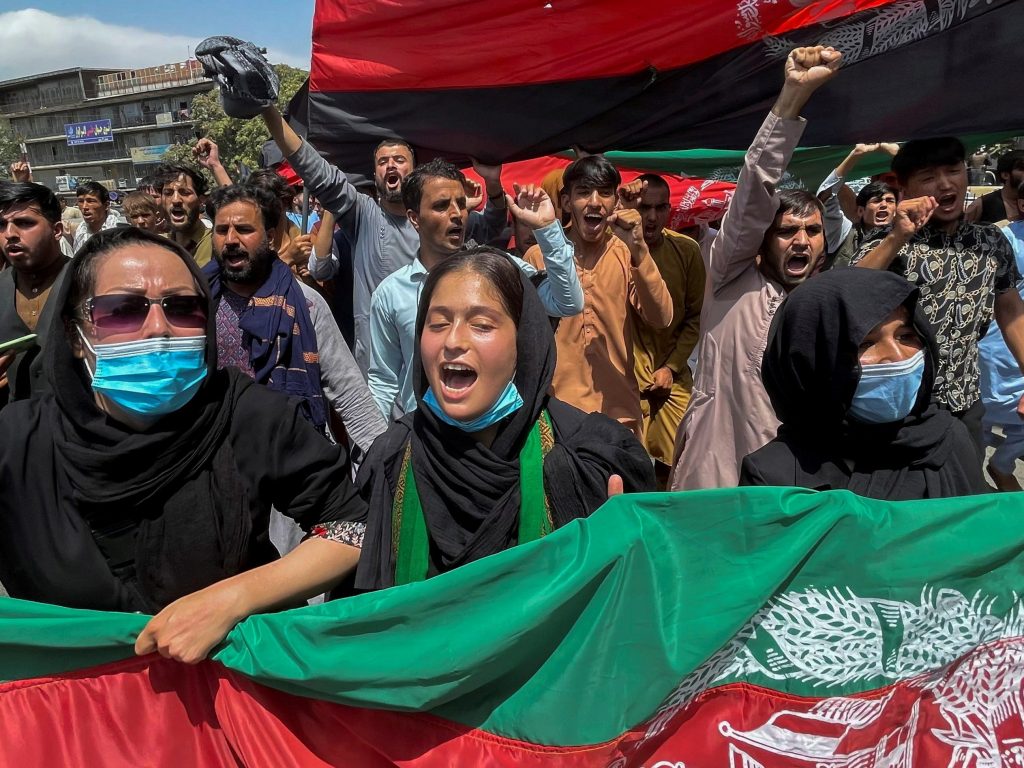
Stringer/Reuters
- The Taliban's rapid takeover of Afghanistan has left women questioning their futures in the country.
- Many fear a repeat of the group's harsh 1996-2001 rule, when women were barred from school and work.
- Journalists, politicians and many others have already been targeted by Taliban fighters.
- See more stories on Insider's business page.
Women in Afghanistan say they're afraid that the Taliban may put an oppressive regime back in place, with one woman in Kabul telling CNN that those who had jobs are scared to go outside.
"Everyone is afraid of the likelihood that the Taliban will stop them outside or put their lives in some form of danger," she said.
Though the Taliban has claimed it will be more respectful of women's rights since it took over control of Afghanistan on Sunday, many are skeptical of the militant group's promises.
The woman told CNN that she highly doubts the Taliban have changed at all and that they lack the same values as other Afghans.
"The thing is, no one trusts anything that comes from the Taliban's mouth."
Another woman in Kunduz said people are stressed about basic survival needs like food and water, according to the network, and that despite Taliban assurances that girls can go to school, the militant group is not following their word.
"The other day, one of our female teachers went back to school and hopped on a rickshaw to get there," she told the network. "In Kunduz, it's very common to travel via rickshaw. However, the Taliban stopped them and beat up the driver for transporting her without a male chaperone. This is what we are currently dealing with."
A woman in Herat told the network that everyone has been in a state of shock and is concerned about what life under the new Taliban regime will look like.
"Everyone is waiting to see what laws and rules the Taliban are planning for the people," she said to the network. "For men - this topic is not as concerning perhaps - but women are stressed and are asking the question: Will we really go back to the '90's after 20 years of so much hard work and progress? Or will the situation be better this time?"
She told the network that Taliban fighters have been going door-to-door looking for people associated with the western-backed Afghan army.
Underscoring the Taliban's past pushes to keep women out of public, posters of women outside Kabul beauty salons have been defaced or vandalized since they conquered Afghanistan.
Female politicians were detained and the militant group told female journalists to stay home from work.
The Taliban "will come for people like me and kill me," Zarifa Ghafari, a prominent female mayor and women's rights advocate, said earlier this week.
One female university student wrote in The Guardian that she feels like a "victim of this political war that men started."
"I felt like I can no longer laugh out loud, I can no longer listen to my favorite songs, I can no longer meet my friends in our favorite cafe, I can no longer wear my favorite yellow dress or pink lipstick. And I can no longer go to my job or finish the university degree that I worked for years to achieve," she wrote.
But amid the fear, there is plenty of defiance.
Videos emerged online of women chanting slogans and waving flags in the streets of Kabul during Afghanistan's Independence Day on Thursday, leading men in a protest against the Taliban.
Female reporters are continuing to work from TV studios and in the streets, despite uncertainty facing their personal safety and career.
The Taliban's 1996-2001 rule featured harsh rules for women like barring them from work or school, and they faced brutal punishments in retaliation.
While the militant group has pledged to give women more freedom this time, many Afghans are skeptical they'll keep that promise and remain afraid of what the new Taliban rule might bring.
Scenes of chaos from Kabul's airport this week only highlighted many Afghans' desperation to leave.
